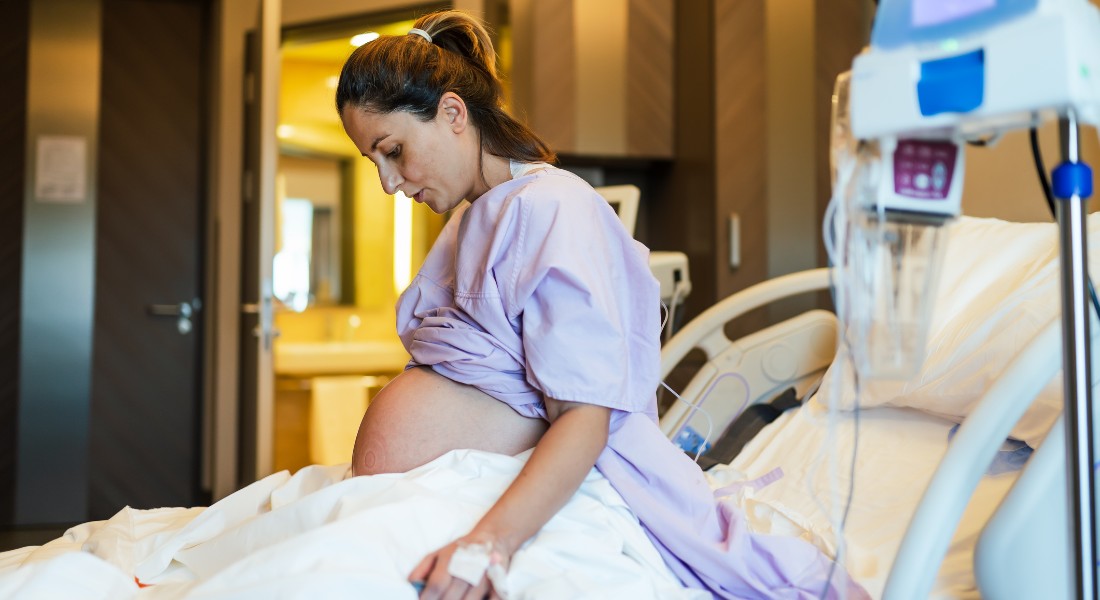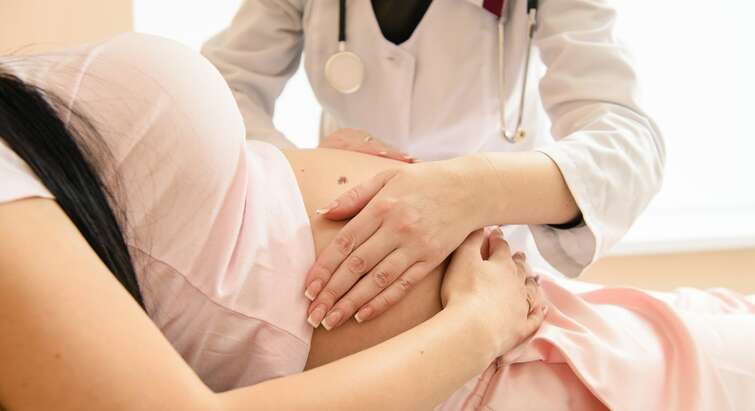Widespread vaginal condition could lead to emergency caesarean section
An imbalance in the vaginal bacteria of pregnant women is associated with an increased risk of emergency cesarean section. This is demonstrated in a new study by scientific researchers at the University of Copenhagen and the Danish Pediatric Asthma Center. The result is "quite surprising", according to the UCPH researcher behind the study.

About one in three Danish women between the ages of 15 and 45 experiences an imbalance in their vaginal bacterial flora at some point. The imbalance is known as bacterial vaginosis (BV) and presents itself without serious symptoms. However, bacterial vaginosis is linked to a number of problems in pregnancy, including premature birth and miscarriage.
In a new study, a group of researchers has demonstrated that the degree of bacterial imbalance in pregnancy is correlated with whether babies are born by vaginal delivery or by emergency caesarean section.
"Our results indicate that the greater the imbalance a pregnant woman has in the vagina, the greater the risk of her delivering by way of an emergency caesarean section," explains Jakob Stokholm, head of the microbiome group at the Danish Pediatric Asthma Center and an associate professor at the University of Copenhagen’s Department of Food Science.
Together with the Danish Pediatric Asthma Center and colleagues from the University of Copenhagen and Aarhus University, Stokholm analyzed 1,396 vaginal flora samples from 736 pregnant women in Denmark.
Among the women with the least imbalance in their bacterial composition, 10 percent delivered by emergency caesarean section, whereas 16 percent of women with greater levels of imbalance had an emergency C-section. Among those women with the highest levels of imbalance, an entire 22 percent delivered their babies via emergency caesarean section.
"Previous studies have shown that a skewed composition of vaginal bacteria flora is linked to problems with infertility, miscarriages and premature delivery. However, the fact that we are able to see such a marked correlation between the degree of bacterial imbalance and emergency caesarean sections is quite surprising," says Jakob Stokholm.
Bacteria may trigger childbirth
In previous studies, the researchers documented how children born by caesarean section are at an increased risk of developing asthma. This is because the composition of their gut bacteria is markedly different than that of children who were born vaginally. Furthermore, surgical wounds from caesarean sections can lead to infection and prolonged periods of pain for mothers.
As such, it is important to discover why the degree of bacterial imbalance in the vagina is linked to emergency C-sections, explains Jakob Stokholm. He stresses that while causation has yet to be fully investigated, a cautious suggestion of the correlation might be made.
"When amniotic fluid of a pregnant woman passes and birth is underway, there is a direct passage from the vagina to the uterus. During a prolonged delivery, one can imagine that certain vaginal bacteria can affect the uterus in such a way that necessitates an emergency caesarean section. This could be manifested by signs of infection in the mother, or a child that is stressed within the womb, as evidenced by an affected heart rate, thus making it necessary to operate and remove the baby," he says.
A new method:
- The researchers have developed a new scale for bacterial vaginosis, which they term 'degree of dysbiosis (imbalance)', in reference to the degree of imbalance in vaginal bacterial flora.
- Their results demonstrate that with increasing levels of dysbiosis (bacterial imbalance), there is an elevated risk of women having an emergency caesarean section.
- The researchers' findings are built upon the analysis of 1,396 vaginal samples from the COPSAC2010 mother-child cohort, which have been DNA sequenced and analyzed with a microscope.
Hold back on soap to the genitals
The ideal bacterial composition in the vagina is very uniform and primarily contains lactic-acid producing lactobacillus bacteria. These bacteria ensure for a healthy environment and shield against pathogenic bacteria.
However, various factors can affect and alter the vaginal flora, explains Søren Sørensen, a professor at the University of Copenhagen’s Department of Biology and a co-author of the study.
"Self-care products containing antibacterial substances can remove some of the important lactobacillus bacteria and thereby interfere with the natural bacterial flora. Therefore, the best thing one can do is to stop applying excessive amounts of soap and creams to the vagina," he says.
Still lacking causality:
- While the researchers see a correlation between high degrees of bacterial imbalance in the vagina and the risk of emergency cesarean section, they have yet to establish causation, i.e., conclusive evidence that the two phenomena are demonstrably linked.
- Therefore, the next step is to conduct a control study examining another group of pregnant women to see if the researchers’ newly developed scale shows the same correlation with caesarean section births.
- Read about the difference between correlation and causation here.
Contact
Jakob Stokholm
Associate Professor
Department of Food Science
University of Copenhagen
jakob.stokholm@food.ku.dk, +45 30646465
Søren Johannes Sørensen
Department of Biology
University of Copenhagen
sjs@bio.ku.dk, +45 51827007
Ida Eriksen
Journalist
Science Faculty
University of Copenhagen
ier@science.ku.dk
+45 93516002

